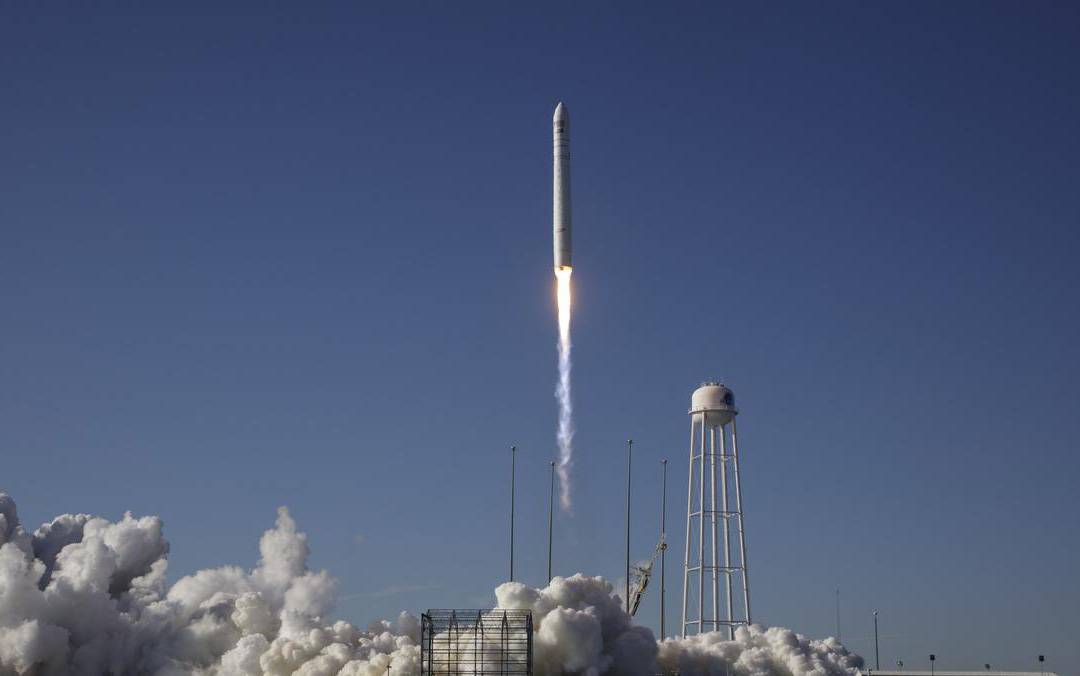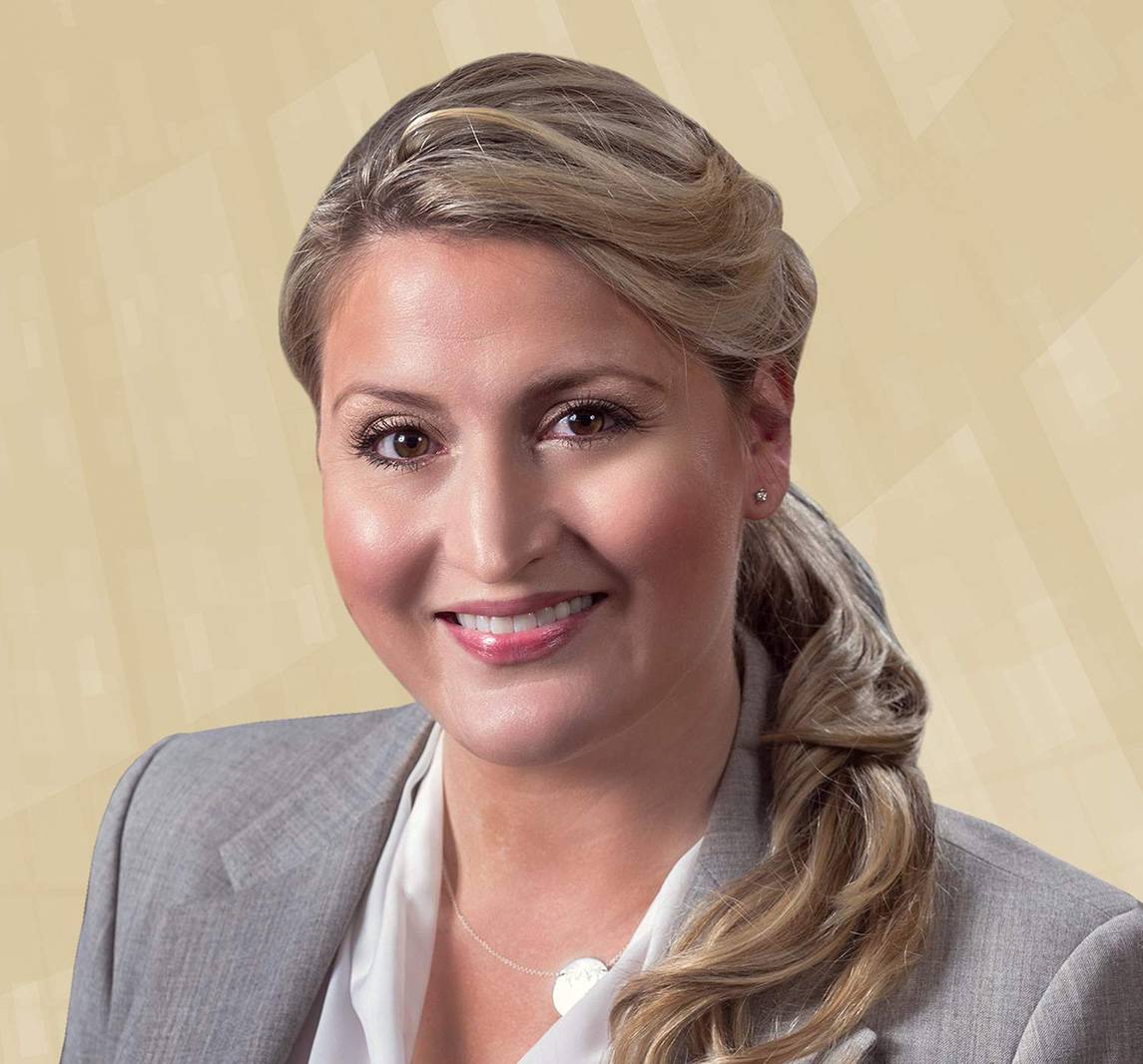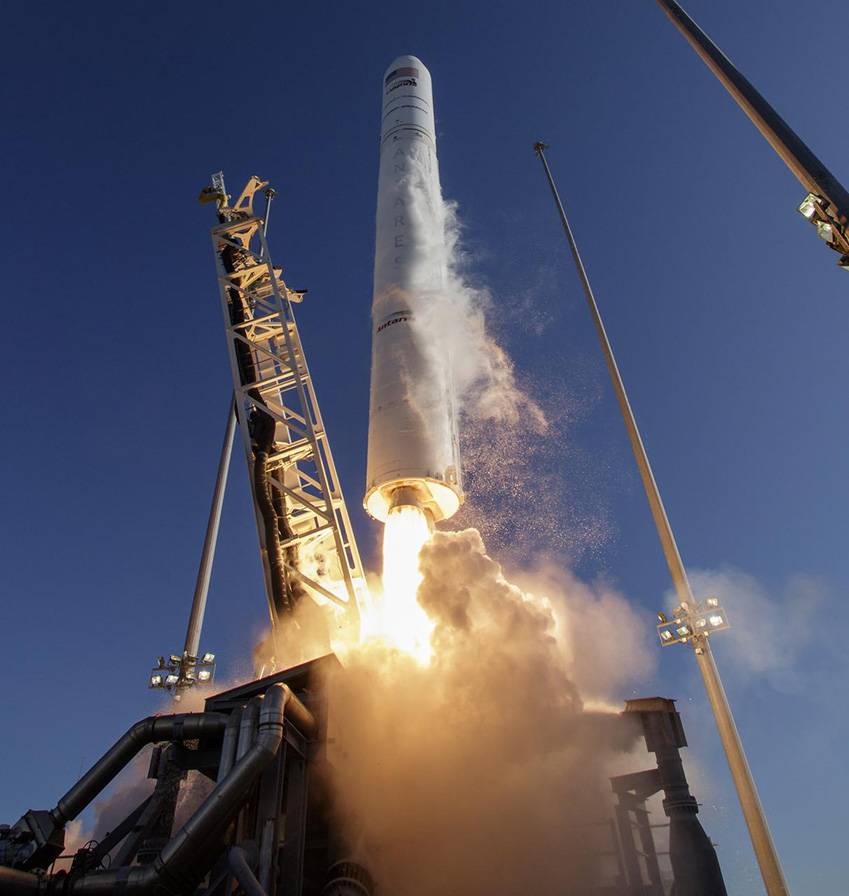Alumna sends experiment to the International Space Station
Emma Carberry | February 14, 2020
This week, NASA and aerospace company Northrop Grumman will launch a rocket that is destined for the International Space Station (ISS). One of the payloads aboard that rocket will be Phage Evolution, an experiment developed by 2006 alumna Olivia Gamez Holzhaus’ company, Rhodium Scientific.


Holzhaus founded Rhodium Scientific in 2014 with no intention of being involved in space. The company’s focus was optimizing scientific procedures for scientists and labs across the nation until Holzhaus and her team realized that the International Space Station’s lab would give their clients resources that had yet to be accessed, such as microgravity. At that point, Rhodium Scientific began facilitating the process of taking experiments to space.
Phage Evolution, a partnership with the University of Wisconsin-Madison, is Rhodium Scientific’s first experiment to launch to the ISS, and it has been three years in the making. According to Holzhaus, the process of gaining access to the ISS was stringent. Before the team could request access, they needed to obtain funding, which they received from the Department of Defense’s Defense Threat Reduction Agency. Then, the project was vetted through the ISS National Laboratory, which manages commercial access to the space station. Once they were granted access, they worked directly with NASA’s safety review panel to make sure all their materials were flight-certified and would not cause any harm to the ISS crew. The process, though arduous, Holzhaus reflects, has helped her company to grow. Now, as their vision finally comes to fruition, she says it feels unreal.
Of course, the launch is only the next step in an ongoing process, as it will be several months before the research team is able to analyze data from Phage Evolution. Phage Evolution is the first project of its kind to be sent to microgravity. Its purpose is to understand microgravity’s effect on the predator/prey relationship between phages and bacteria in order to identify a novel therapeutic. Phages are viruses that only target specific bacteria, a process that microgravity will accelerate or decelerate.

If Rhodium Scientific can harness this interaction, they may be able to identify a phage treatment that replaces antimicrobial resistant antibiotics. This is especially important, Holzhaus says, as antibiotics, which often destroy large areas of the microbiome, have become less useful in the face of more resilient bacterial strains. Phages, on the other hand, would pinpoint specified bacteria and leave the rest of a patient’s microbiome intact. The results of this research will benefit not only astronauts outside of gravity’s reach, but also average people who prefer to stay on Earth.
For Phage Evolution to have the greatest impact, Rhodium Scientific's goal is to complete the flight and post-flight laboratory analysis by the end of the year. Normally, space-based projects take anywhere from 18 to 24 months to make it into orbit, but Holzhaus wants to change that. She points out that biotech companies are bought and sold in a year, and graduate students may complete their programs in two years. She doesn’t see the benefit of taking a project to space if it does not move at the same pace as the researchers who will work with the results.
As someone who followed up her B.S. in microbiology at Texas State with a master’s degree in technology management, Holzhaus is familiar with the speed of business. “Science is no longer just science,” she says, “you have to have a little bit of business know-how.”
While this is Rhodium Scientific’s first payload, it is certainly not their last. They already have another project slated to launch on SpaceX CRS-20 in March of 2020. Holzhaus anticipates that that project, in collaboration with Los Alamos National Laboratory, will be turned around even faster. “Space is the new frontier of scientific research,” Holzhaus says. “Every experiment that’s ever been done since the beginning of time has been done under gravitational constraint. We can start from the beginning of every experiment that’s already been done and add one more parameter – remove gravity. We’re starting life science research from scratch.”
________
The Northrop Grumman Cygnus CRS-13 cargo craft to the International Space Station is scheduled to launch at 2:21 p.m. CST on Saturday, February 15 from NASA's Wallops Flight Facility in Virginia. Watch the launch and associated coverage via NASA TV.
Share this article
For more information, contact University Communications:Jayme Blaschke, 512-245-2555 Sandy Pantlik, 512-245-2922 |